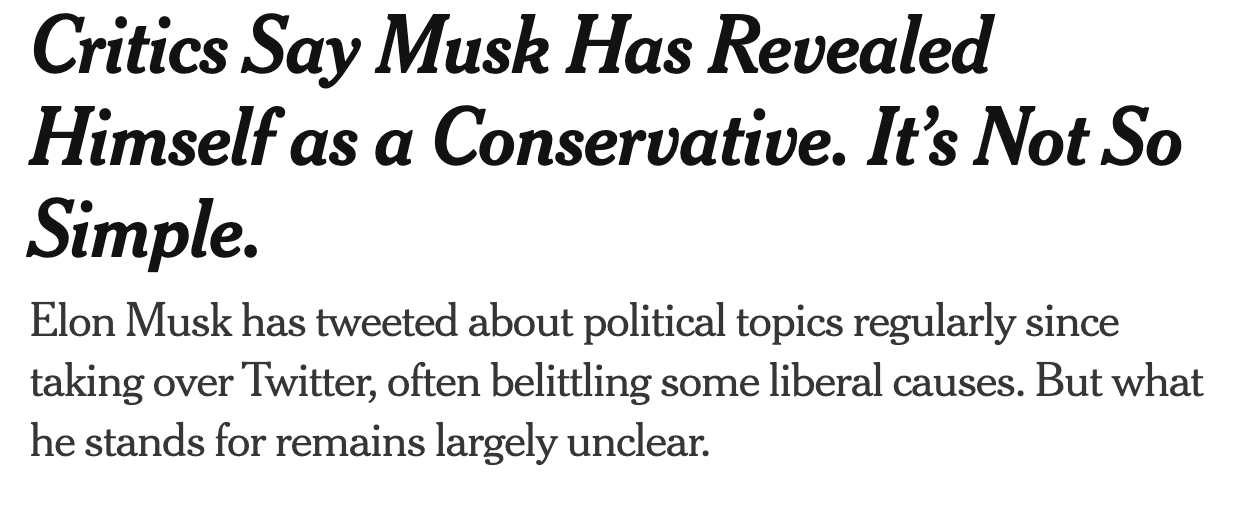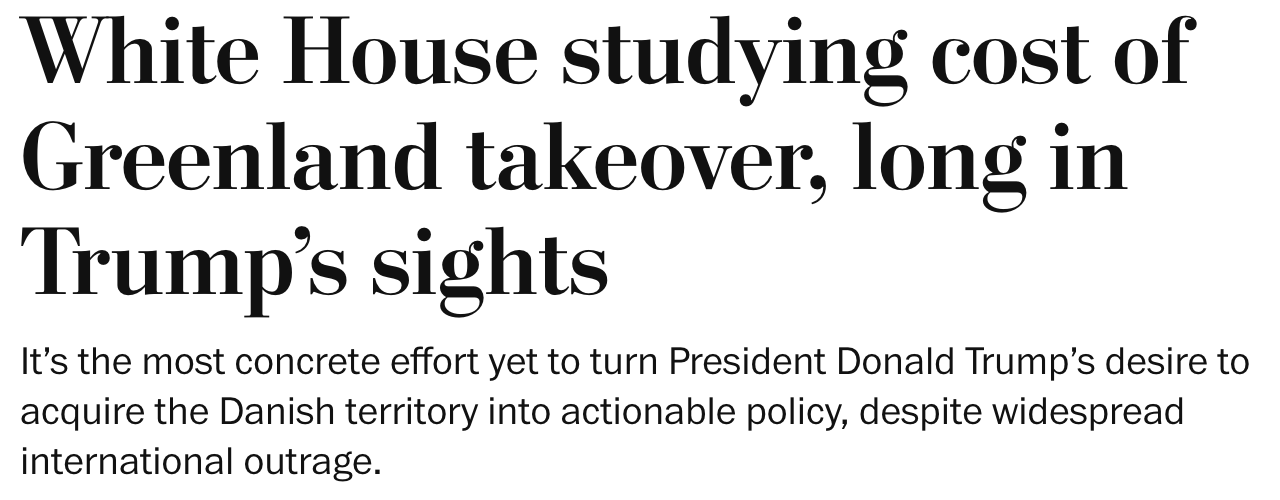How not to report on the end of the world
The media is sanewashing Trump's plans to 'acquire' Greenland
There is a certain class of person who, going by their social media activity, seems to sincerely believe that the United States is two or three punchy New York Times headlines away from reverting to liberal internationalism.
They accuse the paper of everything from drawing false equivalences (“but her emails”), to unequal treatment (see: coverage of Biden’s age versus Trump’s) or failing to adequately convey the stakes of the last election. Sometimes they have a point:
But mostly, it is a fallacy. And I get the obsession. The New York Times is one of the world’s great newspapers and a rare journalistic financial success story. In fact, around 7% of all American newspaper employees work for the Times, up from 1% fifteen years ago.
Amazingly, after all that, today’s newsletter will focus on an article published in that great rival of The Times, The Washington Post. Specifically, this one:
It is a great scoop, no doubt. By speaking to various sources, the reporters reveal that the White House is preparing an estimate of how much it would cost the US government to “control Greenland as a territory”. In doing so, it also demonstrates that ‘plans’ to acquire Greenland go beyond the wild and often incoherent musings of the president. We are all better informed for this reporting.
Yet what is remarkable is that at no stage do the words “unlawful”, “illegal” or “frankly dotty” appear in the article. It is written up as if the Trump administration is merely considering whether or not to nationalise a US steel producer facing financial difficulties rather than seeking to pillage a foreign land.
In fairness, the piece does quote an official who says that the cost analyses are based on “if the Greenlanders vote and support this.” But of course, they won’t and they don’t. Indeed, Greenland’s new coalition government was formed in large part as a show of unity in opposition to Trump’s apparent plans for annexation.
I know, I’m sorry, this is the media talking about the media (though I’m not sure Lines To Take is quite on a par with The Washington Post). But framing matters. For clarity, annexing Greenland (or Canada for that matter) would be illegal under Nato and United Nations treaty commitments, both of which are enshrined in US law.
This is by no means the only subject on which the media’s framing can seem completely detached from the substance. For instance, when Trump signs executive orders to shut down entire government departments, headlines will sometimes call it “controversial” or “highly unusual”, rather than unlawful and in breach of Article 1 of the constitution.
For the sake of brevity, I’m going to steer clear of the geopolitical stuff, including the fact that the US does not need to “acquire” Greenland in order to gain greater security and economic benefits. Or how such adventurism would destroy US credibility vis-à-vis Russia’s annexation of Ukrainian territory or Chinese desires to conquer Taiwan.
The final quote in the Post’s article, from Sam Hammond, chief economist at the Foundation for American Innovation, is truly through the looking-glass territory. He says: “One of the benefits they have in mind is re-creating the ethos of the American frontier. It’s hard to quantify that in monetary terms.” Erm, ok. My guess is that the US annexing a Nato ally would be bad for business. And threatening to do so isn’t much better.






I remember the first Trump administration when a lot of political people thought he would not make it through to 2020. Now we are faced with a constitutional clash that will either weaken the American Constitution or cause him to be successfully impeached. In the meantime he is causing so much trouble that eventually someone will have to do something. Canada has made a start. Now Europe should inform America that its bases and personnel in Europe are no longer needed and agree a date to run them down.
It would be hilarious if it were a novel, film or play but as reality it is somewhat scary.